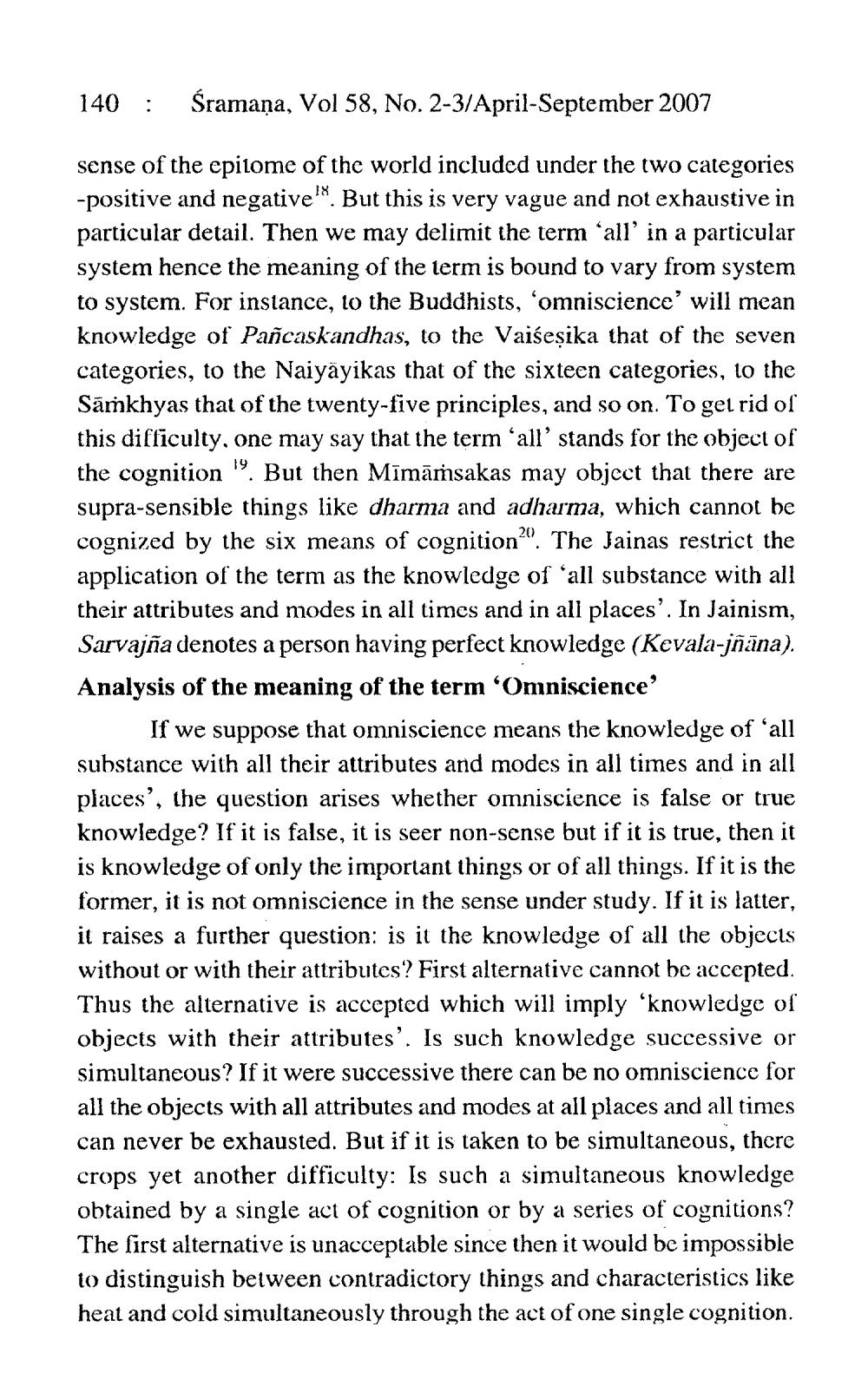________________
140:
Śramaņa, Vol 58, No. 2-3/April-September 2007
sense of the epitome of the world included under the two categories -positive and negative. But this is very vague and not exhaustive in particular detail. Then we may delimit the term 'all' in a particular system hence the meaning of the term is bound to vary from system to system. For instance, to the Buddhists, 'omniscience' will mean knowledge of Pañcaskandhas, to the Vaiseșika that of the seven categories, to the Naiyäyikas that of the sixteen categories, to the Sāmkhyas that of the twenty-five principles, and so on. To get rid of this difficulty, one may say that the term 'all' stands for the object of the cognition "9. But then Mīmāmsakas may objcct that there are supra-sensible things like dharma and adharma, which cannot be cognized by the six means of cognition". The Jainas restrict the application of the term as the knowledge of all substance with all their attributes and modes in all times and in all places'. In Jainism, Sarvajña denotes a person having perfect knowledge (Kevala-jñāna). Analysis of the meaning of the term 'Omniscience'
If we suppose that omniscience means the knowledge of all substance with all their attributes and modes in all times and in all places', the question arises whether omniscience is false or true knowledge? If it is false, it is seer non-sense but if it is true, then it is knowledge of only the important things or of all things. If it is the former, it is not omniscience in the sense under study. If it is latter, it raises a further question: is it the knowledge of all the objects without or with their attributes? First alternative cannot be accepted. Thus the alternative is accepted which will imply 'knowledge of objects with their attributes'. Is such knowledge successive or simultaneous? If it were successive there can be no omniscience for all the objects with all attributes and modes at all places and all times can never be exhausted. But if it is taken to be simultaneous, there crops yet another difficulty: Is such a simultaneous knowledge obtained by a single act of cognition or by a series of cognitions? The first alternative is unacceptable since then it would be impossible to distinguish between contradictory things and characteristics like heat and cold simultaneously through the act of one single cognition.




